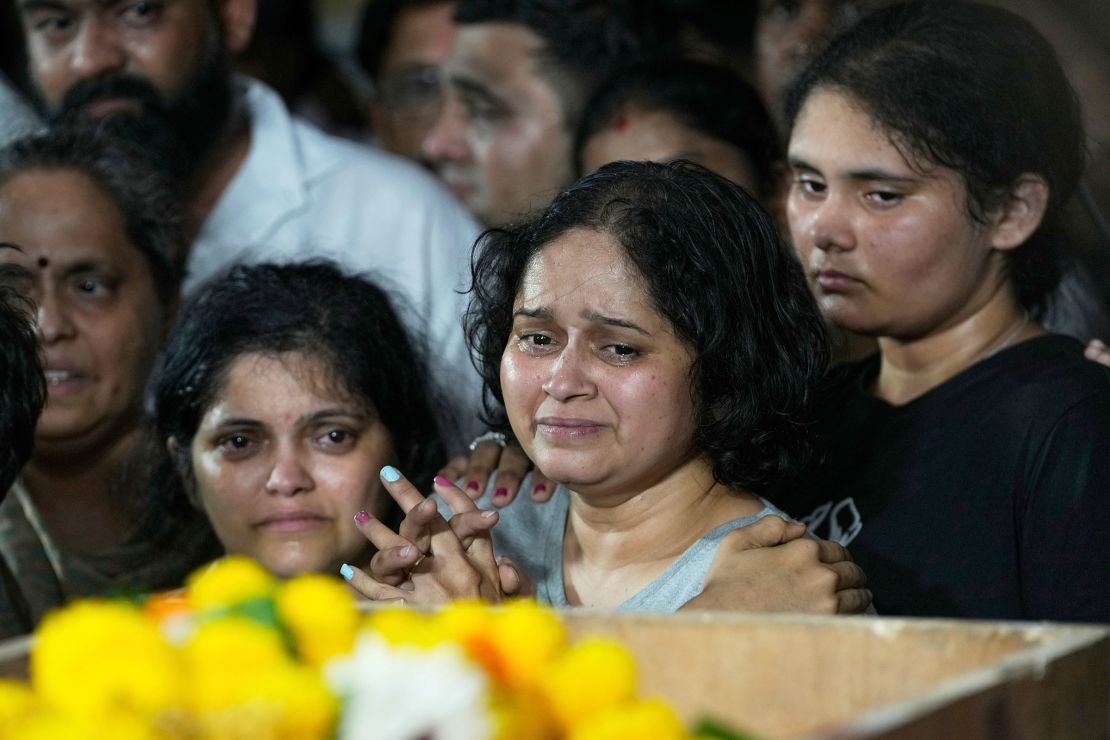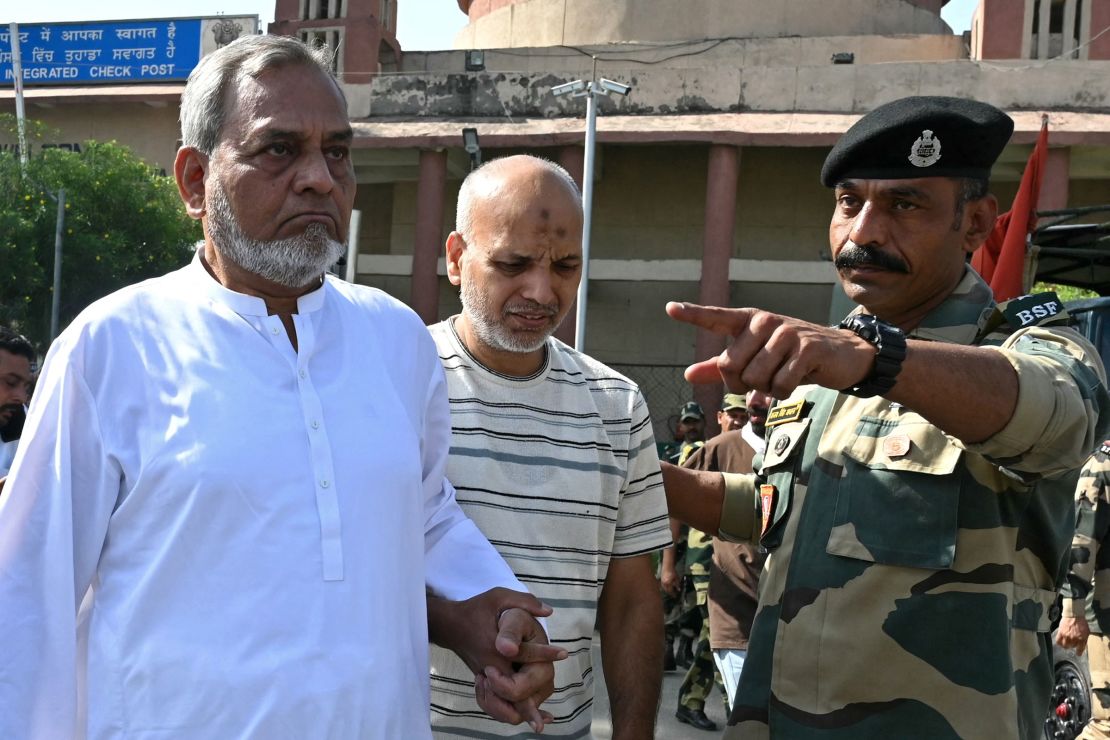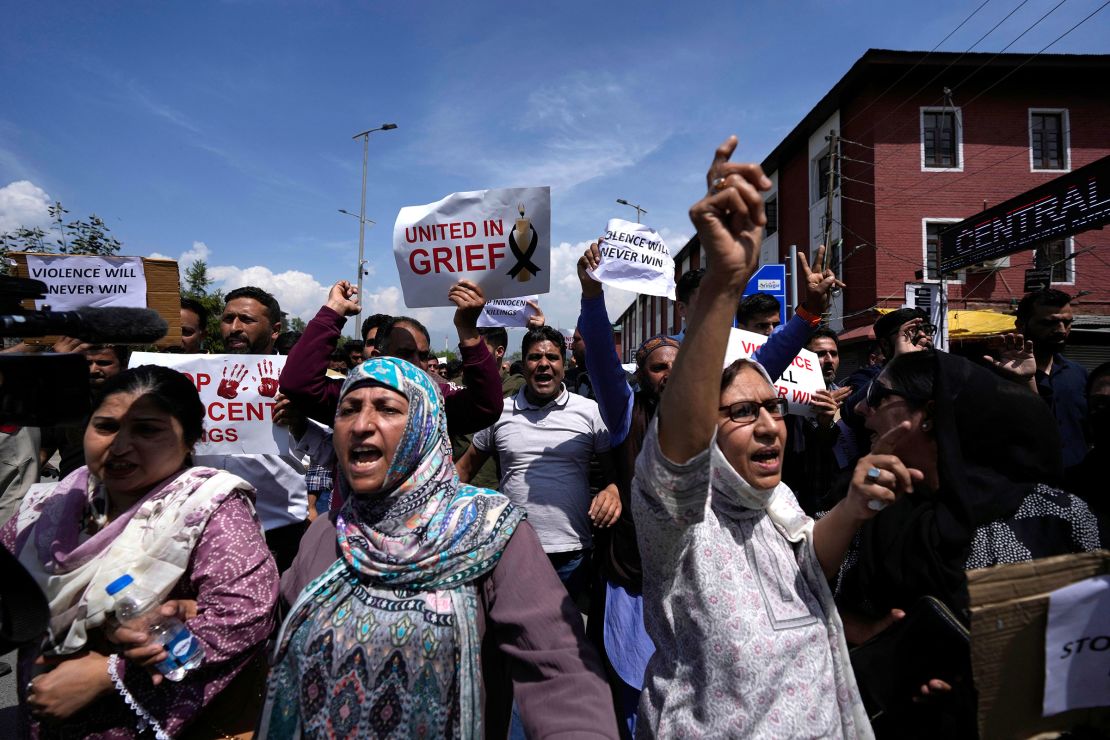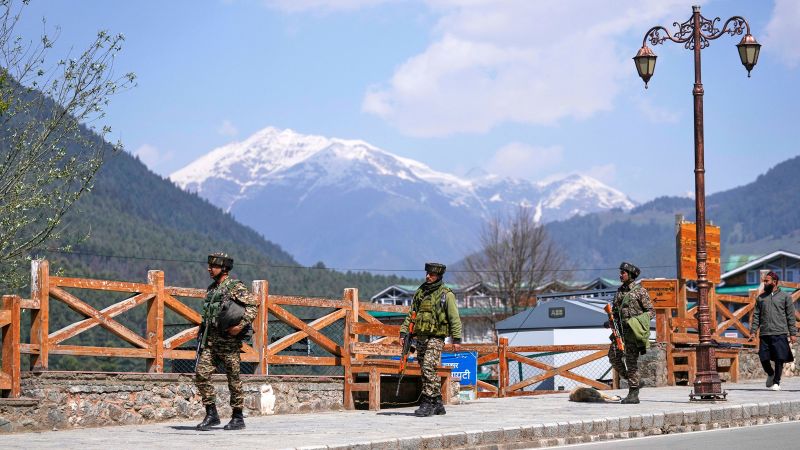CNN
—
Relations between India and Pakistan are cratering following a deadly attack in the disputed Himalayan region of Jammu and Kashmir that left more than two dozen tourists dead, raising fears of another military escalation between the nuclear-armed rivals.
New Delhi downgraded ties with Islamabad, summoned its top diplomat, suspended for the first time its involvement in a crucial water-sharing treaty and shut a key border crossing, among other punitive measures in the wake of what was the region’s worst assault on civilians in years.
All but one of the 26 people massacred were Indian citizens, prompting a new wave of unrest in a region claimed by both Pakistan and India and that has been the epicenter of often violent territorial struggle between the two countries.
For decades, several domestic militant groups, demanding either independence for Kashmir or for the area to become part of Pakistan, have fought Indian security forces, leaving tens of thousands killed in the violence.
On Wednesday, India accused Pakistan of supporting terrorist groups in the region, after a little-known militant group called The Resistance Front claimed responsibility. Pakistan has denied any involvement.
India’s Prime Minister Narendra Modi on Thursday vowed to pursue the attackers “to the ends of the earth,” during a speech in the northeastern state of Bihar.
“From the soil of Bihar I say to the whole world, India will identify, track and punish every terrorist and their backers,” he said, using English rather than his usual Hindi.
“India’s spirit will never be broken by terrorism. Terrorism will not go unpunished. Every effort will be made to ensure that justice is done. The entire nation is firm in this resolve.”
Here’s what you need to know.
Gunmen on Tuesday opened fire on sightseers in a popular travel destination in the mountainous destination of Pahalgam in Indian-administered Kashmir, a rare assault on tourists.
At least 25 Indian citizens and one Nepali national were killed in the massacre, which unfolded in a meadow in the Baisaran Valley – which is only accessible by foot or on horseback.
Eyewitnesses described scenes of horror as the gunmen approached, opening fire on tourists from close range. Some recalled how the men were singled out and shot at. Other survivors speaking to local media said the gunmen accused the families of supporting Prime Minister Modi before shooting.
Photos and videos of the aftermath – showing lifeless bodies strewn on the ground and grieving loved ones wailing in fear – have reverberated across social media, a vivid portrayal of the pain and suffering endured by families whose holidays ended in horror.

A little-known militant group called The Resistance Front claimed responsibility for the attack on social media, voicing discontent at “outsiders” who settled in the region and caused a “demographic change.” It did not provide evidence and CNN cannot independently verify its claim.
Indian authorities have heightened police and military deployment to the region and personnel are on the hunt for the perpetrators.
Modi in his Thursday speech vowed punishment for the perpetrators of the attack.
“I want to say in clear words that whoever has carried out this attack, those terrorists, and the people who devised this attack, will be punished in a manner worse than anything they can imagine,” he said.
Kashmir Resistance, also known as The Resistance Front (TRF), is a relatively new militant outfit that has claimed killings of civilians from minority communities residing in Kashmir in recent years. Not a huge amount is known about them.
TRF declared its existence in 2019 through the encrypted messaging app Telegram, after claiming responsibility for a grenade attack in Jammu and Kashmir’s largest city of Srinagar, according to research by the New Delhi-based think tank Observer Research Foundation (ORF).
The arrival of TRF is portrayed as the “inception of a new indigenous resistance in Kashmir,” ORF said in 2021.
India has classified TRF as a “terrorist organization” and linked it to the outlawed Islamist group Lashkar-e-Tayyiba, which was behind the deadly Mumbai attacks in 2008 and has a much higher profile.
“TRF positions itself as a political resistance force, born in Kashmir and one for Kashmir, against illegal occupational forces, having no centralised jihadi figure or leadership,” according to ORF.
Why is Kashmir important to India and Pakistan?
Kashmir is one of the world’s most dangerous flashpoints. Claimed in its entirety by both India and Pakistan, the mountainous region has been the epicenter for more than 70 years of an often-violent territorial struggle between the nuclear-armed neighbors.
The festering issue has spurred three wars between the countries and a de facto border called the Line of Control divides it between New Delhi and Islamabad.
Tensions between Hindu-majority India and Muslim-majority Pakistan over the disputed region have surged in recent years, after the Modi-led government revoked its constitutional autonomy in 2019, bringing it under the direct control of New Delhi.

While the Indian government has said that militancy has since declined amid a heavy military presence, attacks have continued to plague the region, sparking unrest and protests. Meanwhile, there has been heavy media censorship and communication blackouts.
Analysts say Tuesday’s massacre shattered the illusion of calm that Modi has projected of the region and raises questions of how such a security lapse could have occurred in one of the most militarized zones in the world.
How have India and Pakistan responded?
India has not publicly blamed any group for the attack but has justified its retaliatory moves as a response to Pakistan’s alleged “support for cross-border terrorism.”
Pakistan has denied any involvement and will convene a national security meeting on Thursday to discuss next steps.
New Delhi announced several punitive measures against Islamabad a day after the attack, including shutting a key border crossing and further restricting already limited visas for Pakistani citizens. It also expelled military, naval and air advisors from the Pakistani High Commission in New Delhi.
But perhaps among the most significant acts of retaliation thus far is New Delhi suspending its role in the Indus Water Treaty, an important water-sharing pact between India and Pakistan that has been in force since 1960 and is regarded as a rare diplomatic success story between the two fractious neighbors.
The enormous Indus River system, which supports livelihoods across Pakistan and northern India, originates in Tibet, flowing through China and Indian-controlled Kashmir before reaching Pakistan. The vast volume of water is a vital resource for both countries, and the treaty governs how it is shared.
“Downgrading diplomatic ties and holding the Indus Water Treaty in abeyance does not bode well for stability in the region,” said Fahd Humayun, assistant professor of political science at Tufts University.
“Not only does the suspension amount to a violation of international treaty obligations, but the right to water as a lower riparian country is seen as a national security issue by Pakistan and suspending (it) will be read as a belligerent action.”
Pakistan’s Minister of Power Awais Leghari on Wednesday called the move “an act of warfare.”
“Every drop is ours by right, and we will defend it with full force — legally, politically, and globally,” said Leghari.
Thousands have flocked to the streets to condemn the deadly attacks as business owners express concerns over the impact it has already had on the popular tourist destination during peak season.
“There has been 80-90% cancellation of all our tours and travels in the coming days and weeks,” said Mohsin, who goes by one name, and manages a tour company in the region. “We are in complete monetary loss. I might have to shift to another business if this continues.”
Schools and businesses have resumed after being shut on Wednesday in many parts of Kashmir, while demonstrations of solidarity erupted in Srinagar’s Lal Chowk, the city square.

“We all could not just sit by and watch. We came out to show emotion, solidarity, and condemn the killings,” said local resident Umar Nazir Tibetbaqan. “Our protests (on Wednesday) were a signal to everyone that all Kashmiris stand with the country in this hour of grief.”
Meanwhile, anti-Pakistan protests have erupted in India’s capital Delhi and several other cities, raising fears of fueling anti-Kashmiri and anti-Muslim sentiment.
All eyes are now on how New Delhi and Islamabad will respond. And the question, analysts say, is not if there will be military retaliation but when.
“Modi will have a very strong, if not irresistible, political compulsion to retaliate with force,” said Arzan Tarapore, a research scholar from Stanford University’s Center for International Security and Cooperation.
“We don’t know what that would look like, and it’s somewhat meaningless to speculate at this point, but I think the 2019 Balakot crisis provides some cues on what to watch for in India’s response,” Tarapore said, referring to New Delhi’s response to a militant attack on Indian troops which killed at least 40 paramilitary personnel in Indian-administered Kashmir.
New Delhi retaliated by launching airstrikes on Pakistan, the first such incursion into its territory since the 1971 war.
“The key question will be will they seek to impose more meaningful, tangible costs on terrorist groups, including by targeting their leadership or headquarters facilities? Or will India go even further, crossing the threshold to attack the Pakistan army?” said Tarapore.
“India’s military capabilities have grown since 2019, so it may feel emboldened to take on such bigger targets.”
And while India’s military prowess has grown in the years since, Pakistan has been rocked by political instability and economic disarray.
Yet Humayun, the professor from Tufts, said should the Indian government choose to resort to military action, there is “every reason to believe that Pakistan will respond in kind.”
“Absent strategic restraint or third-party intervention, the chances of uncontrolled escalation in the coming days is thus not insignificant,” he said.

